For the Love of Coffee: Kenyan Fair Trade Coffee
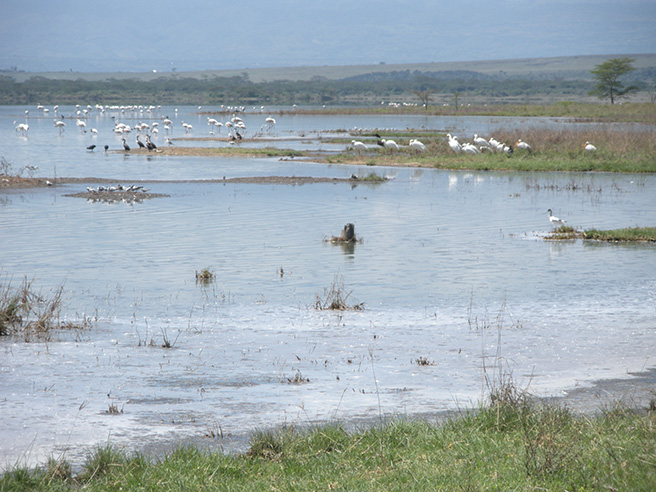
It seems like we had been traveling for days on bumpy roads, so it was a relief to be on the smooth, paved road from Nairobi toward Nakuru and the Great Rift Valley. We passed many sights; small villages selling fruit and other products and fields of arrowroot, tea and Eucalyptus crops.Then we came upon green fields along the sides of the road that caught my eye… coffee.
Since studying horticulture and having an extensive plant collection myself, including one coffee plant, I wanted to stop and touch these coffee plants. Instead I just took a close up picture and looked over the vast dark green field. I have always found this an attractive plant and now I could see it in its home environment, rather than on my porch. The coffee plant has shiny leaves and red berries, which Kenya’s beautiful landscape has displayed for decades, this being one of their largest cash crops. Inside these bright red berries there are two seeds, which are the green coffee beans. After a careful roasting and brewing, this is the beginning of the day for much of the world.
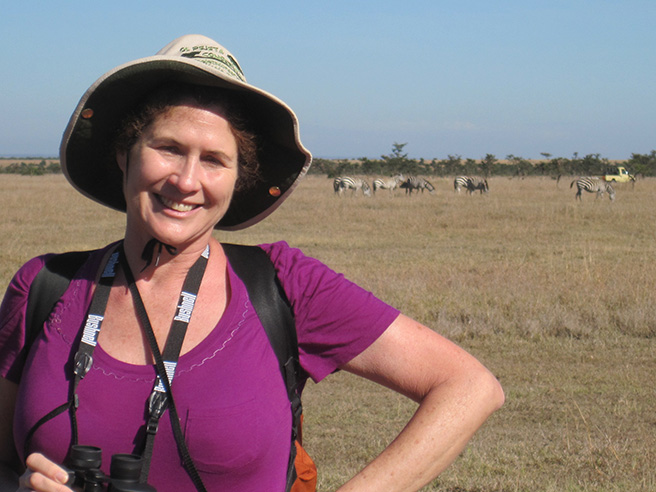
I am accompanying my professor and a group of students from George Mason University on a winter conservation program tour. As we traveled around we had the opportunity to meet with many people active in conservation in conservancies, sanctuaries, in animal orphanages and with endangered species. One day we had the opportunity to visit the African Wildlife Foundation and spend some time learning about their projects and responsibilities. I left impressed with the intricacies of conservation and the variety of skills needed for this position. They have the difficult task of balancing the need to protect the environment while keeping economics and social equity in mind; it is a complicated business.
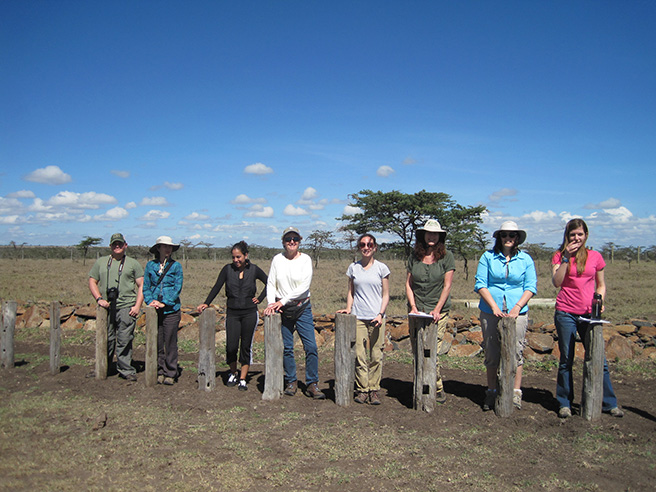
I wanted to learn more about Kenyan coffee, although I still hadn’t tasted any. This land is composed of rich volcanic soil, which in combination with the cool highlands near the equator produces some of the best coffee in the world—primarily the flavorful Arabica coffee. It has been described to have bright acidity sweetness with a dry winy aftertaste and some say it has a black current flavor and is complex and savory. Similar to a wine, this coffee is grown in the perfect environmental condition, using one type of bean in the best growing place.
However you might describe this coffee, it demands a high price on the coffee market because of these qualities. Kenyans take their coffee seriously; having a Coffee Board, a Coffee School and a Coffee Research Foundation. The foundation is an institution of research and development that concentrates on sustainable prosperity for the coffee industry. The college focuses on a sustainable system for the coffee industry by training and the provision of materials and hospitality services. It is also an efficient information exchange forum for students, researchers, farmers and others involved coffee sectors.
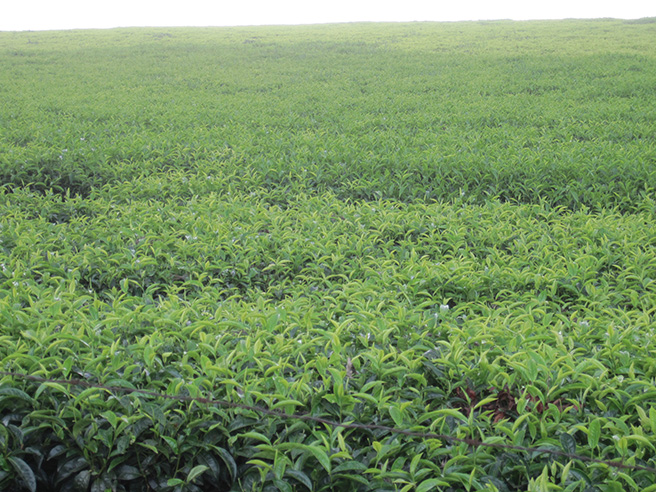
Small and large farms grow the coffee which the government sells pools which are bid upon in which the producers get a fair average price the coffee. The government also rewards farmers for producing better coffee, which leads to steady improvements. Another method of maintaining social equity for laborers is the attention from companies such as Starbucks Coffee Company, AGRO Café, Grounds for Change and Counter Culture Coffee for Fair-Trade coffee. These companies embrace the vision of everyone involved in the production of coffee deserves the right to benefit. This means the farmer and the community prosper and market trends will not rob them of this because of minimum prices for products.
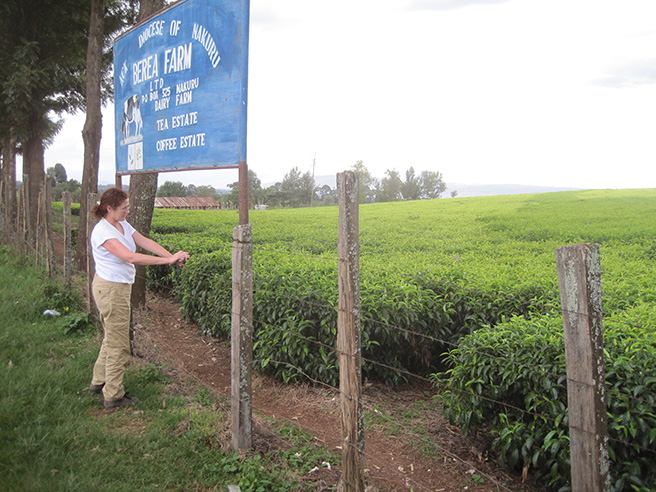
Since coffee is a crop that is burgeoning worldwide, it is important to see how this fits into conservation while remaining organic and profitable in Kenya. Their coffee is ecologically produced using no fertilizers, pesticides or herbicides, and the recycled plant residues are used as mulch. This manner of crop growing enhances biodiversity by creating a closed loop ecological process, which has a minimum negative impact on the air, water and soil as well as keeping erosion in check. The coffee shares the land with fruit trees, creating another crop while reducing the air temperature and conserving the moisture in the soil. Because production is dependent on rainfall, mulch and irrigation, the shallow feeder roots on the surface are more protected and effective while shaded. Terracing, grass strips and cover crops are other methods of creating environmental diversity and cooling the land.
There are other strategies in place for farmers and for the future, including addressing global warming issues. The Climate Change Response Strategy of Kenya is pivotal to government policies involving food and water stress as well as adaption to climate changes. This forward thinking will protect agriculture, tourism, wildlife, energy, water and the people for the future. Oh, and most Kenyans drink tea!
This is a guest blog from George Mason University's Kenya Ecology and Conservation course with instructor Ryan Valdez. The students stayed at the research centre of the Ol Pejeta Conservancy while in Africa and visited AWF's headquarters to learn about conservation and share their experiences.